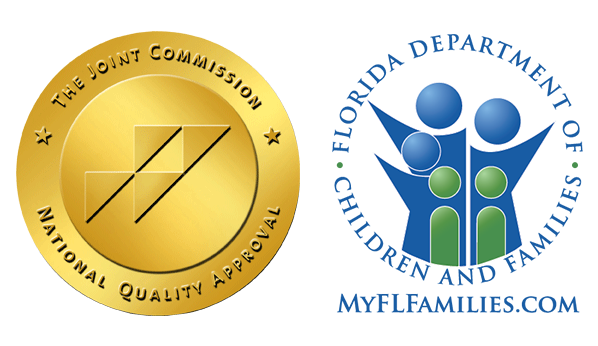The opioid crisis in America has reached alarming levels, and at the forefront of this epidemic is a powerful and dangerous drug called fentanyl. Fentanyl is a synthetic opioid that is up to 100 times more potent than morphine and 50 times stronger than heroin. Its potency and widespread presence have led to a significant increase in overdose deaths across the country. Understanding the dangers of fentanyl is essential for anyone who may come into contact with opioids, either directly or indirectly.
At Beachcomber Recovery, we have seen firsthand the devastating effects that fentanyl can have on individuals and their families. Through our fentanyl treatment program in Delray Beach, we help individuals break free from the grips of addiction and regain control of their lives. In this blog, we’ll discuss the dangers of fentanyl, how to recognize its presence, and the steps you can take to stay safe.
What is Fentanyl?
Fentanyl is a synthetic opioid that was originally developed as a pain reliever for patients with severe or chronic pain, especially those undergoing surgery or cancer treatment. While pharmaceutical fentanyl is still prescribed for medical purposes, illicitly manufactured fentanyl has flooded the streets in recent years. This illegal version of the drug is often mixed with other substances like heroin or cocaine, making it even more dangerous for users who may not know they are consuming fentanyl.
Due to its extreme potency, even a small amount of fentanyl can cause a fatal overdose. Just two milligrams of fentanyl—the equivalent of a few grains of salt—can be enough to kill an adult. This makes fentanyl one of the deadliest drugs currently in circulation.
Why is Fentanyl So Dangerous?
Several factors contribute to the extreme danger posed by fentanyl:
- Potency: As mentioned earlier, fentanyl is incredibly potent. Because it is so strong, even a tiny miscalculation in dosage can result in a fatal overdose. Users may not be aware of how much fentanyl they are ingesting, especially if it is mixed with other drugs.
- Illicit Manufacturing: Illegal fentanyl is often manufactured in unregulated, clandestine labs, meaning the purity and dosage can vary widely. Users have no way of knowing how much fentanyl is in a given batch, which increases the risk of overdose.
Recognizing the Signs of Fentanyl Use
Due to its potency and the serious risk it poses, recognizing the signs of fentanyl use is crucial in helping loved ones before it’s too late. Common signs of fentanyl use or addiction include:
- Drowsiness or Confusion: Fentanyl depresses the central nervous system, leading to extreme drowsiness or confusion.
- Pinpoint Pupils: One of the telltale signs of opioid use is constricted or “pinpoint” pupils.
- Nausea or Vomiting: Fentanyl can cause nausea, vomiting, or other gastrointestinal distress.
- Shallow Breathing: Fentanyl slows the respiratory system, leading to shallow or labored breathing. In severe cases, breathing may stop entirely.
- Euphoria Followed by Fatigue: Users may experience an initial euphoric high, followed by extreme fatigue or sedation.
If you suspect that someone you care about is using fentanyl, it is important to seek help immediately. Our fentanyl treatment program in Delray Beach at Beachcomber Recovery provides comprehensive care for individuals struggling with addiction, offering them a path to recovery and healing.
How to Stay Safe
Given the extreme dangers associated with fentanyl, staying safe requires awareness, caution, and education. Here are some steps you can take to protect yourself and others:
- Avoid Illicit Drugs: The most effective way to avoid fentanyl-related harm is to stay away from illicit drugs altogether. Even if you think you are using heroin, cocaine, or another substance, there is a very real chance that it could be laced with fentanyl.
- Know the Signs of Overdose: Familiarize yourself with the symptoms of an opioid overdose, which include slowed or stopped breathing, unresponsiveness, blue or pale skin, and pinpoint pupils. If you see someone exhibiting these signs, seek emergency medical help immediately.
- Carry Naloxone: Naloxone (Narcan) is a medication that can reverse the effects of an opioid overdose if administered in time. If you or someone you know is at risk of fentanyl exposure, carrying naloxone could save a life.
Beachcomber Recovery: Your Partner in Recovery
At Beachcomber Recovery, we understand the complexities of fentanyl addiction and the toll it can take on individuals and their families. Our fentanyl treatment program in Delray Beach is designed to help individuals overcome their addiction and build a healthier, sober life. We offer a supportive and compassionate environment where recovery is possible, and our team is dedicated to guiding you every step of the way.
Fentanyl is a powerful and dangerous drug that poses serious risks to anyone who comes into contact with it. Understanding these dangers and taking proactive steps to stay safe can save lives. If you or someone you love is struggling with fentanyl addiction, there is hope. Contact Beachcomber Recovery today to learn more about our fentanyl treatment program in Delray Beach and how we can help you reclaim your life from addiction.











